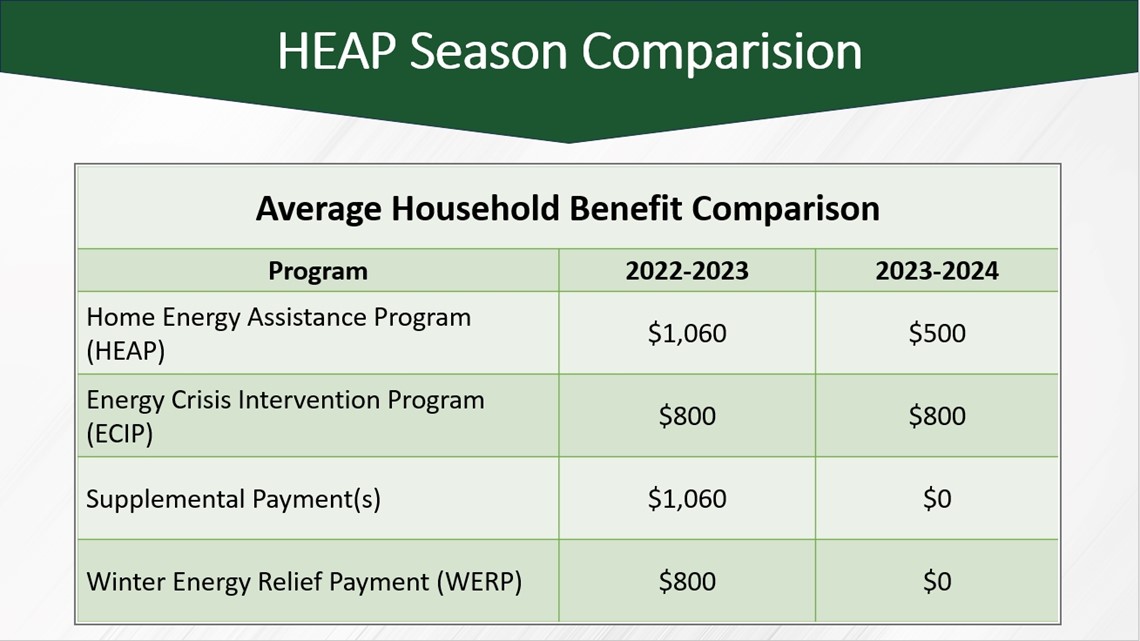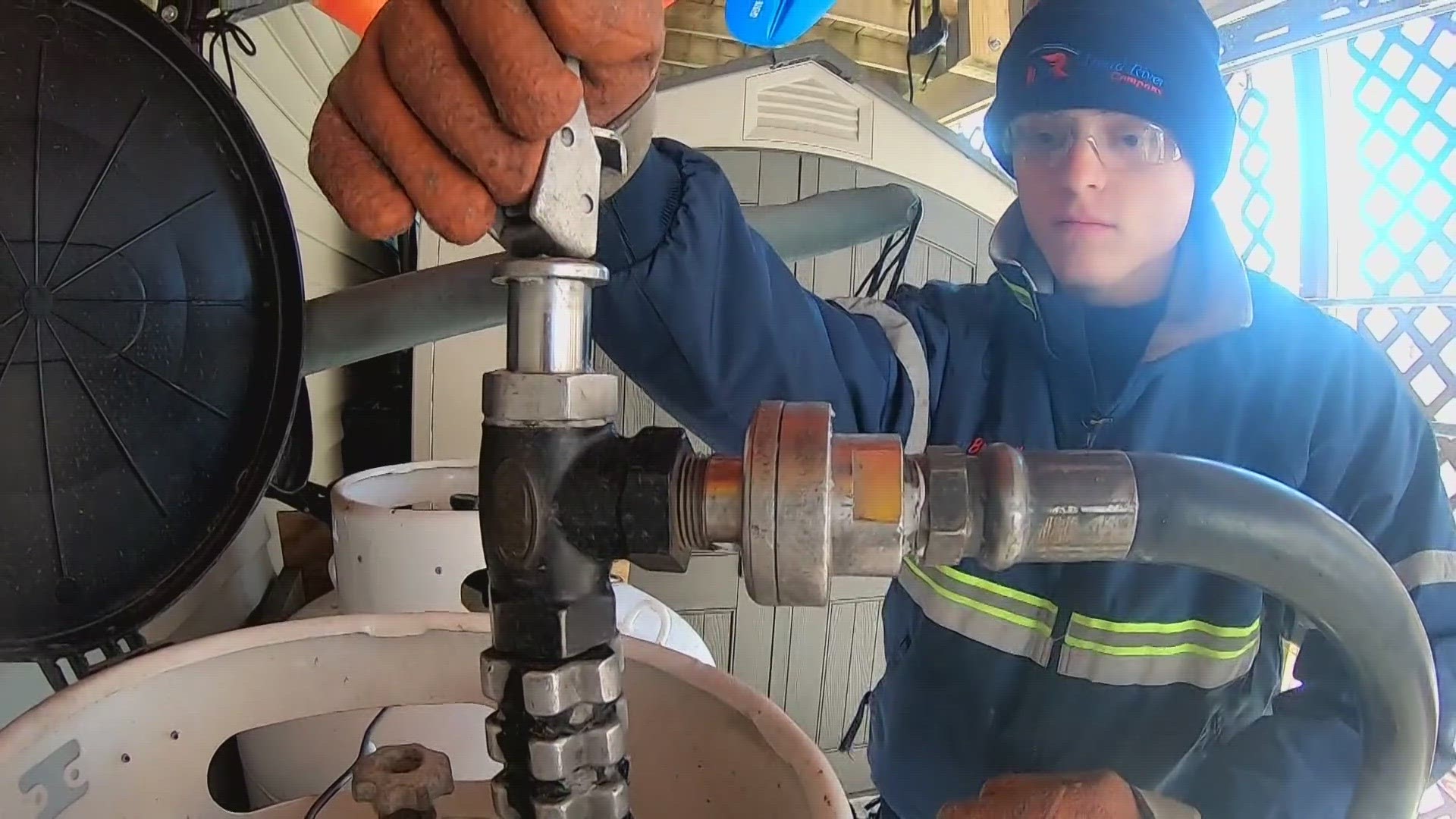BANGOR, Maine — Heating assistance program directors said they may not be able to help as many families stay warm this winter due to large losses in federal aid, between 2023 and 2024.
Jason Parent, the executive director and CEO of Aroostook County Action Program (ACAP) said last year, in addition to increased funding for the traditional Home Energy Assistance Program (HEAP), heating assistance programs received additional funding last year when the Maine legislature provided supplemental payment money and approved the Winter Energy Relief Program (WERP).
With WERP and other programs available to heating customers who qualified for assistance, more than $3,000 in federal funding was allocated to eligible Maine families who applied for support.
Families who were experiencing heating emergencies and who needed immediate bill assistance could also apply for the Energy Crisis Intervention Program (ECIP), which gave one-time support.
Because there was additional funding available, Parent said families who are often ineligible for assistance due to their monthly income slightly exceeding program eligibility requirements, but who still need help covering high monthly expenses, were able to apply for and receive heating bill assistance.
Now, fast-forwarding to this year, the WERP program and supplemental funding dollars were both discontinued. Parent said funds for the Home Energy Assistance Program (HEAP) were also cut in half, and whereas families could receive a one-time payment of $1060 last year, households are now only able to receive $500.


Parent said ACAP, as well as other heating assistance programs across the state, is now running out of funds to help families who regularly receive assistance.
"Unfortunately, right now for some of the households that we serve — the available resources are just not there," Parent said.
According to Parent, ACAP has already spent over $100,000 in donor funding that helps replenish the money that funds ECIP. Donor funding is often used to provide emergency heating fuel assistance to families, and Parent said the organization has completely depleted this year's available donor funds account.
Lynn Lugdon, who is the heat division manager at PENQUIS Community Action Agency (CAP) in Bangor, said thousands of families often find themselves choosing between paying their heating bill or stocking their refrigerators.
"With inflation, it's just gone crazy," Lugdon said. "So, you choose between your oil — your foods — your medicines. And they mainly choose their food and medicines."
Lugdon said PENQUIS CAP has served over 8,500 heating customers this season already, but trying to support families is becoming harder and harder. With funding cuts and now that WERP and supplemental payments are no longer available, Lugdon said representatives are having to be the bearers of bad news and turn some families away.
"It's hard for the staff to get the phone calls and households saying that they're in desperate need, and you want to take the money out of your own pocket to help," Lugdon said.
Lugdon's staff assists families like Sarah Newburke's, who is a mom of two. During an interview with NEWS CENTER Maine, she took heavy pauses, holding back her emotions as she shared her struggles to pay her monthly heating bill to keep her children Liam and Adeline warm this winter.
"It's difficult to watch your children be cold," Newburke said. "The ache goes away when my children have food — when they have heat. The families that never have to worry about that — they're extremely fortunate. But that's not our family right now."


Newburke said the cost of living has drastically skyrocketed, and her monthly heating bill nearly triples in the winter compared to other seasons.
"The price of oil has been detrimental to a lot of families, ours included," Newburke said.
She said heat is a necessity and explained that some people who seek government-funded assistance often have to weigh between which necessity like food, electricity, or heat, they need more.
Newburke said not only are families like hers struggling to manage rising expenses, but they are also constantly fighting against negative stigmas associated with receiving government-funded assistance.
"There's this idea that families that need help, that need food stamps, that need heating assistance are lazy or not doing everything they can for their families. And that's just not the case. I work a lot," Newburke said. "I have worked at my job for 11 years, and I am committed to my children and providing for them. But during the winter our electricity bill is almost triple what it usually is during the other seasons. So, the combination of the heating and just the cost of oil, which is astounding, and the additional electricity bill makes it so that we do live paycheck to paycheck more so than usual. I do have to save knowing that winter is coming."
Parent said he doesn't know how assistance programs will make it through the full season without additional funding.
"Unless something changes right now, I don't know where the resources are going to come from," Parent said. "We've never run out of donor dollars this early in the season."
NEWS CENTER Maine held its annual Project Heat Telethon on Thursday, Jan. 25. Newburke said lending a hand to the next person is key to maintaining a strong sense of community where everyone feels supported.
"I would help anyone that asked me, and I have," Newburke said. "Because I value receiving that in the same way."

